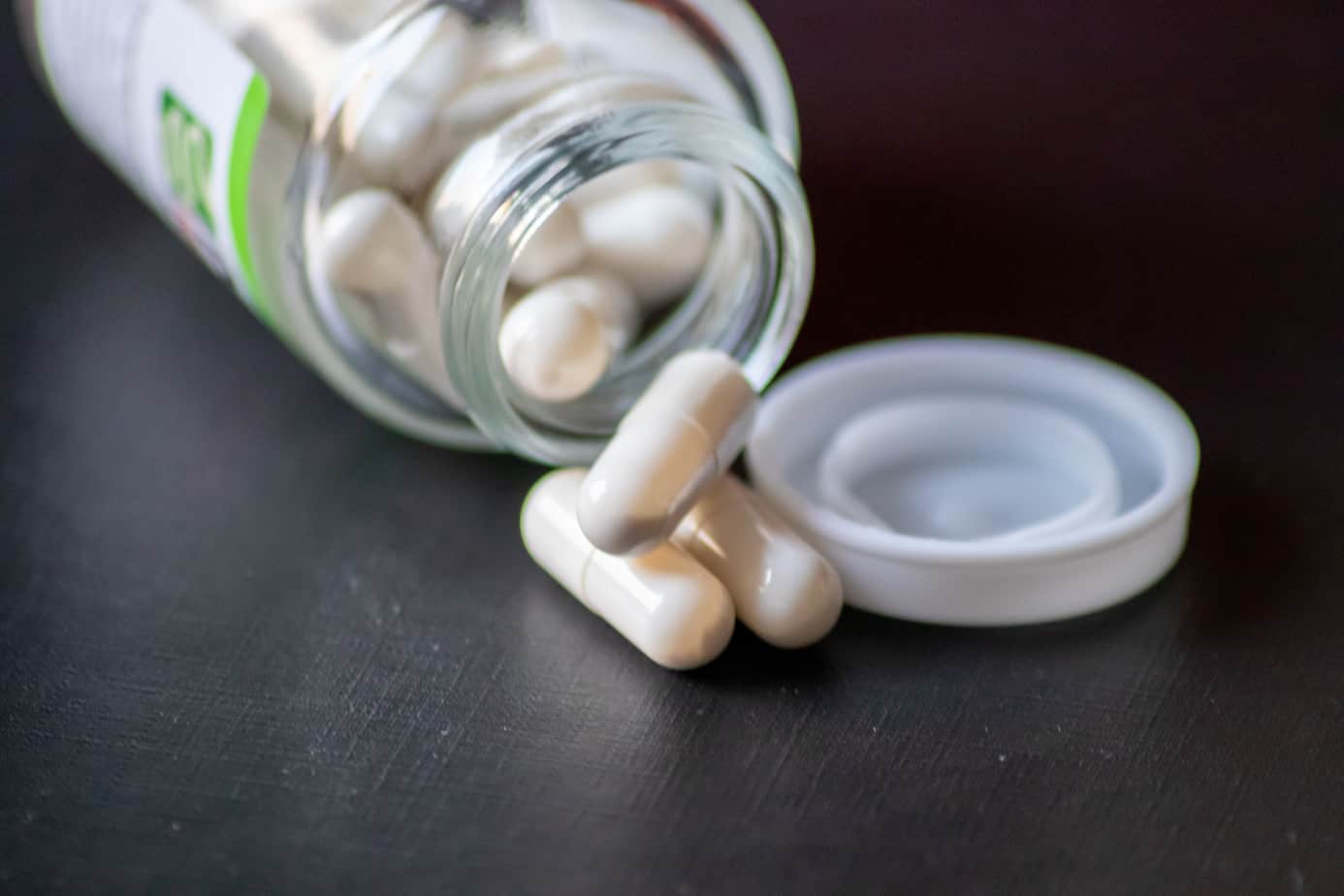Drug abuse always carries the risk of serious side effects, including overdose. Although a user may think they are being “careful” and never intend to overdose, their life is actually in danger each time drugs enter their body. And while not all overdoses are fatal, there is always the possibility of irreversible damage for the rest of their life.
Topics covered in this article:
- What is a Drug Overdose?
- What Drugs Can You Overdose On?
- Opioid Overdose
- Alcohol Overdose
- Stimulant Overdose
- What Causes an Overdose?
- What Are Signs of an Overdose?
- What Happens After an Overdose?
What is a Drug Overdose?
An overdose is when you ingest a toxic amount of a substance, whether prescribed or illicit, and your body can’t metabolize it fast enough. When you use an extreme amount of drugs or alcohol, the substance travels through your bloodstream and disrupts major parts of your body, including the brain and central nervous system. From there, you may become unconscious and need immediate medical attention to reverse the effects. Not all overdoses result in death, but a significant number of them do.
Using provisional data, the CDC found that over 107,000 Americans died of drug overdoses in 2021, contributing to the dangerous overdose epidemic plaguing the country. For context, this data roughly translates to one overdose death in the US every five minutes.
What Drugs Can You Overdose On?
Each drug affects your body differently during an overdose. While some substances slow down all your bodily functions, others will make your heart rate and blood pressure skyrocket. Below describes how each common substance affects the body.
Opioid Overdose
When people consume a harmful amount of opioids, whether taken as a pill, injected, or snorted, opioid molecules will interact with opioid receptors in the brain and reduce cell activity. At the same time, the drug releases an abundance of neurotransmitters (brain chemicals that aid in communication) that are too extreme for your brain to handle. One of these chemical messengers, dopamine, interferes with the brain stem, which controls basic functions like unconscious breathing.
When this interaction takes place, normal message transmission between the brain and body is disrupted. Breathing slows down and oxygen levels begin to fluctuate. Without enough oxygen, your heart starts pumping erratically and can cause the rest of your organs to shut down. As a result of low oxygen levels, you will likely become unconscious and unresponsive to stimuli. From there, you may enter a state known as “nodding off” where you fall in and out of consciousness.
Recently, opioid overdoses have climbed because powerful synthetic opioids, like fentanyl and carfentanil, are being mixed into weaker drugs to boost their potency. Sometimes prescription opioid pills like Oxycodone are laced with these dangerous drugs. Fentanyl is about 50 times stronger than heroin and a dose the size of a few grains of salt is enough to be lethal.
Out of the 107,000 drug overdose deaths in 2021, 72,000 or two-thirds of those deaths involved fentanyl or another synthetic opioid.
Alcohol Overdose
Individuals who binge drink are at increased risk of experiencing an alcohol overdose, also known as alcohol poisoning. When you consume alcohol, your liver is only able to process about one standard drink per hour. Ingestion of too much alcohol too fast can overload the liver and lead to high levels of alcohol in the blood, which can be poisonous and harm basic life functions.
Typically, alcohol poisoning happens if your blood alcohol concentration (BAC) levels are 0.40 percent or higher. For reference, a standard drink raises BAC levels by 0.02 percent for an average American man. He would need to consume at least 20 drinks in one sitting to overdose on alcohol. Be aware that alcohol poisoning occurs at different rates for everyone based on factors such as gender, ethnicity, and body composition. For some people, consuming just a few drinks can be enough to push your body over the edge. Moreover, the alcohol concentration of drinks plays another factor in alcohol poisoning. If drinks are made stronger, it would take less to raise your BAC and intoxication level.
If you are experiencing an alcohol overdose, you may have severe mental confusion, vomiting, blackouts (gaps in memory), and loss of consciousness. Alcohol can also hinder a person’s gag reflex, making them more likely to choke on their own vomit, leading to asphyxiation. Sadly, around 2,200 Americans die from alcohol poisoning each year. In other words, this equates to about six deaths per day.
Stimulant Overdose
Stimulants cause euphoria and provide a boost of energy but have a high propensity for misuse. It’s hard to predict how much stimulant drugs can cause an overdose which is also referred to as “overamping”. For example, a frequent user of cocaine may feel fine for weeks and suddenly their body may decide it’s had enough. During a stimulant overdose, the substances cause your heart rate, body temperature, and blood pressure to rise. This rapid change places strain on all areas of the body and increases the risk of having a heart attack, seizure, or stroke. Some of the most common signs you may experience are extreme anxiety, paranoia, and panic attacks.
Stimulant overdoses are not entirely dependent on if you’ve taken too much of the drug. You can also “overamp” due to some of the negative experiences that coincide with using stimulants – being awake for long hours, not getting proper nutrition, or not hydrating enough. All of this places extra stress on your body and makes it more likely to shut down.
Commonly abused stimulants are street drugs like cocaine and methamphetamine and prescription drugs like Adderall and Ritalin. While the majority of overdose deaths are due to opioids, overdose deaths involving meth nearly tripled from 2015 to 2019.
What Are the Signs of an Overdose?
A wide range of signs and symptoms can indicate an overdose and may appear at different rates for each person. Keep in mind that some signs may be harder to detect than others.
Opioid Overdose Symptoms
- Pinpoint pupils
- Slowed or stopped breathing
- Unconsciousness/non-responsiveness
- Limp body
- Pale face
- Clammy skin
- Purple or blue color to lips and fingernails
- Vomiting
Alcohol Overdose Symptoms
- Confusion
- Vomiting
- Seizures
- Slow breathing
- Blue-tinged skin or pale skin
- Low body temperature (hypothermia)
- Unconsciousness/non-responsiveness
Stimulant Overdose Symptoms
- Vomiting
- Falling asleep/passing out (but still breathing)
- Chest pain or a tightening in the chest
- High temperature/sweating profusely, often with chills
- Rapid heart rate
- Irregular breathing or shortness of breath
- Convulsions
- Stroke
- Severe headache
- Teeth grinding
- Tremors
If you notice someone exhibiting a few or all of these symptoms, don’t hesitate to contact medical help.
What Factors Can Cause an Overdose?
Even if you have been taking the same amount of a drug for months, all it takes is just one time for something to go wrong. Overdoses are sudden and can be a traumatic experience for everyone involved. If you are trying to figure out if you are at risk of an overdose, there is no magic number to determine how much or how little of a drug will make your body exceed that dangerous threshold.
Overdoses depend on multiple factors and each person will react differently to drugs or alcohol. A person’s height, weight, and overall health play a big role in this. For example, one dose of heroin may be tolerable for someone’s body, while another person may fall unconscious in a matter of minutes. These are some of the factors that can influence your risk of experiencing an overdose:
- The potency of the substance – It’s difficult to identify the potency, or how concentrated a drug is. In some cases, when taking alcohol or prescription pills, the strength of the substances is clearly labeled. However, for street drugs, such as cocaine and Xanax, you are never certain about what you are getting from a dealer. Many times, fentanyl or carfentanil will be mixed into those drugs, so determining the potency of street drugs is nearly impossible.
- Taking a large amount of the substance at once – As your body’s tolerance to a drug rises, you may be inclined to take more of the drug to feel the same effect as when you first started using. The increase in dosage can be enough to send your body into chaos.
- Abusing multiple substances – When you take multiple substances, the outcomes are complicated. Mixing two similar substances tends to heighten the effects of each drug. For example, combining sedatives like alcohol and benzodiazepines, will exacerbate their depressant properties and greatly suppress your respiratory system. On the other hand, mixing two drugs with opposite effects, like heroin and cocaine, creates a dangerous push-pull reaction in the body, increasing the chances of an overdose.
- Intravenous drug use – If you inject substances into your body, the drugs go straight into the bloodstream and reach the brain at a faster rate than if you were to take the drugs orally.
- Resuming drug use after a period of abstinence – Using drugs after being sober for a period of time is called relapse. Relapsing can increase the risk of an overdose because your tolerance is much lower than it used to be.
The best way to reduce the possibility of an overdose is to cut drugs entirely out of your life and pursue sobriety.
What Are Long-Term Effects of Drug Overdose?
While you can survive a drug overdose with the right treatment and care, it’s possible you may be left with long-term medical conditions. When you overdose on opioids, your body stops pumping sufficient oxygen to the brain. If the brain goes three to five minutes without enough oxygen, it can suffer from permanent brain damage.
This is referred to as toxic brain injury. The results of the brain damage vary from person to person but can leave you with several symptoms including vision and hearing impairment, difficulty concentrating, and memory and coordination loss. Sometimes, if the damage is severe enough, the individual may be left paralyzed, unable to speak, or in a vegetative state.
If there are repeat occurrences of alcohol poisoning, you could be more inclined to develop liver cirrhosis and other chronic diseases, as well as esophageal and colorectal cancers. Lastly, if you overdose on stimulants, you could succumb to stimulant psychosis which causes visual and auditory hallucinations. Normally, this condition goes away after a few days, but there are some people who must deal with it forever.
What Happens After Surviving an Overdose?
After an overdose, you will likely be monitored by medical professionals who will watch for any abnormal vital signs and work to stabilize your physical health. In some cases, you may have developed memory lapses and cardiac, respiratory, or gastrointestinal problems that require ongoing medical care.
An overdose is a traumatic experience that takes a serious toll on your body. In the days and weeks following an overdose, take extra time to focus on your physical well-being. It’s almost equally important to nurture your mental health. Are you feeling overwhelmed or lost? Are you thinking about giving up substances but not sure how?
Avoid repeating the cycle of overdose by seeking help from a mental health professional or reaching out to a drug rehabilitation center. They can point you in the best direction and get you the help you deserve.
If you or a loved one is struggling with addiction, Mountainside can help.
Click here or call (888) 833-4676 to speak with one of our addiction treatment experts.

 By
By 







